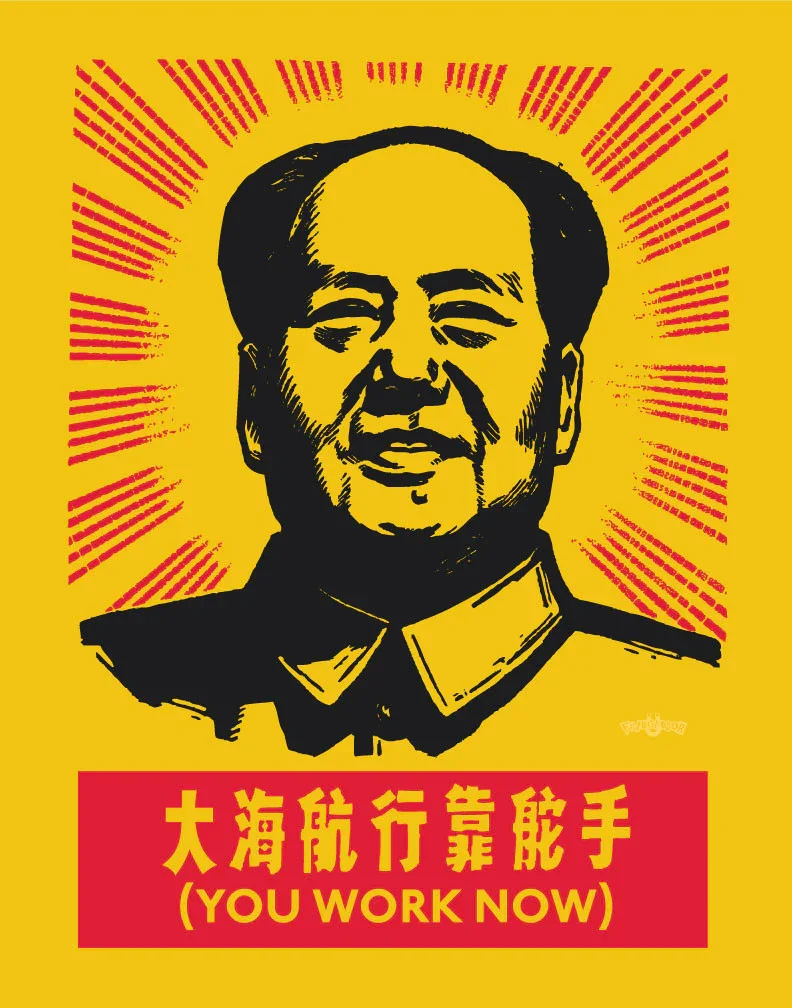COLD WAR HISTORY: MAO VS STALIN
how did mao zedong’s view of the cold war differ from the soviets?
Mao Zedong advocated a more aggressive response to the Cold War than the post-Stalin leaders of the Soviet Union. His war experience and fear of a resurgence of US-backed Kuomintang Nationalists made him a geopolitical opponent of “peaceful coexistence.” Overall, Mao’s thinking reflected Stalin’s 1946 speech, when Stalin blamed Soviet shortcomings on anti-Party conspirators and right-wing activists. However, differences in Marxist implementation, Chinese culture, and Mao’s lived experience led to a rift with the Soviets in prosecuting the Cold War.
Ideologically, Mao was aligned with the Soviet Union in following the Marxist roadmap to pure socialism. However, Chinese realities produced differences in practice. Where the Soviet Union had an industrialized proletariat contiguous to advanced Western nations, China was physically isolated and agrarian. Mao’s task, therefore, lay in his ability to mobilize China’s vast peasantry. This contrasts the Leninist approach, which sought to compete with the West in technology and industrialization before freeing the proletariat from capitalist bounds. The difference in execution and China’s larger population led Mao to challenge Stalin as the true leader of the worldwide communist movement. Throughout his reign, Mao tried to demonstrate that his brand of communism and leadership were superior.[1]
Other divergences in prosecuting the Cold War stemmed from differences between the USSR and PRC in culture, geography, and history. Lenin’s revolution was against a monarchy, steeped in Marxist concepts created in industrial nineteenth century Germany. Mao’s fight was against an out-of-touch post-republican Kuomintang government led by a former general, Chiang Kai-Shek, who had warred against the Chinese Communist Party (CCP) for decades.
Moreover, where Czarist Russia had been an acknowledged world power, imperial China had suffered humiliation by foreign powers in episodes like the Opium War, when China was forced to cede Hong Kong to Great Britain, and a loss to Japan in Korea, when China ceded Taiwan. These nationalist memories made Mao an invasion-fearing isolationist at heart, unlike Stalin, who pursued transnational ambitions.
Though the two leaders’ ideologies overlapped, their relationship was fractious. During the Chinese Civil War, Stalin was skeptical that Mao’s CCP could win and hedged by backing the Nationalists. And while the Comintern had once helped to establish the CCP, Stalin’s Nationalist support ultimately caused Mao to repudiate Soviet control of the CCP in 1935.
Ignoring these differences, however, the US viewed Mao’s communists as a puppet of the USSR.[2] The US aggressively backed the Nationalists before and after WWII, which ultimately precipitated Stalin to embrace Mao to ward off US influence in Asia. When the CCP defeated the Nationalists in 1949, the USSR was the first country to recognize the PRC and completed a formal alliance, including $300M in Soviet loans and technical help. Their common enemy was the US, which would refuse to recognize the PRC for the next 30 years.
Nevertheless, differences in Cold War strategy swiftly emerged, as illustrated by Mao’s response to the US in Korea. Already chafing at the perceived American presence on China’s borders, Mao did not hesitate to order a hot war against the US when the Americans drove the North Koreans to the Yalu River.[3] This contrasts the Soviet prosecution of the Korean war, where the Soviets fought by proxy.
Despite interpersonal tensions, after Stalin’s death, Mao was taken aback by Khrushchev’s “secret speech” criticizing the former leader. Though the leaders had clashed, Mao considered Stalin an economic patron and geopolitical ally. He thus viewed Khrushchev’s de-Stalinization pivot and subsequent insistence that China repay Soviet debts as a betrayal.
Deluded by his cult following and belief in his status as the true leader of communism, Mao refuted those in the USSR who advocated coexistence with the West. Harkening his isolationist tendencies, he turned inward and kicked off the “Great Leap Forward” in a disastrous attempt to turn the peasantry into an industrial engine. In contrast to Khrushchev’s attempts at détente with the West, Mao purged China of suspected capitalist sympathizers.
Finally, in the ultimate illustration of Mao’s more aggressive posture in waging the Cold War, Mao shocked the Soviets by insisting the USSR should risk nuclear war with the US. Mao’s stance caused the Soviets to terminate further nuclear assistance to China.[4]
[1] Powaski, The Cold War.
[2] Powaski.
[3] “The Cold War.”
[4] Powaski, The Cold War.

